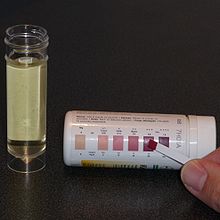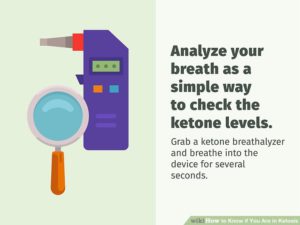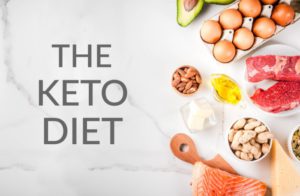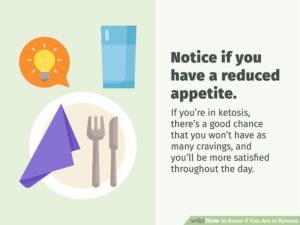Contents
What Is Ketosis?
Ketosis is a state induced in the body in which fats are used to generate energy rather than carbs.
What Happens In Ketosis?
When the body doesn’t have enough carbohydrates to use for energy, it enters ketosis. The presence of ketones is referred to as ketosis. It isn’t dangerous in any way. Whether you’re on a low-carbohydrate diet or fasting, or whether you’ve had so much alcohol, you might be in ketosis. When you’re in ketosis, you have more ketones in your blood or urine than normal, but not enough to induce acidosis. In this type of stage, it burns fat to produce ketones, which it can use as a source of energy. Instead of breaking down sugar or glucose from carbs, the body can break down ketone bodies, a form of fuel created by the liver from fat to generate the energy for the body.
Ketosis is a physiological condition in which the blood contains a high level of ketones. When fat is the primary source of energy for the body and glucose is scarce, this process of formation of ketone bodies occurs. Many cells in the body prefer glucose as a fuel supply. Ketosis is often linked to ketogenic and extremely low carbohydrate diets. It may also occur during breastfeeding, childhood, fasting, or starvation.
When you eat a very low-carb diet, your insulin levels decrease, and you release a lot of fatty acids from your body’s fat reserves. Many of these fatty acids are transferred to the liver and oxidized, resulting in the formation of ketones (or ketone bodies). These molecules have the ability to supply energy to the body. Ketone bodies also possess the ability to cross the blood-brain barrier and provide the brain with energy molecules in the absence of glucose.

Gluconeogenesis
It is correct that glucose is favoured and that certain brain cells will only function on glucose. However, a considerable portion of the brain will use ketones for energy under some circumstances, such as when you’re hungry or your food is lacking in carbohydrates. In reality, after just three days of famine, ketones provide 25% of the brain’s resources. This figure increases to about 60% during long-term starvation.
Furthermore, your body will generate the glucose that your brain still needs during ketosis by using protein or other molecules. Gluconeogenesis is the term for this process. Ketosis and gluconeogenesis are capable of meeting the brain’s energy requirements. When the brain doesn’t have enough glucose, ketones can be used as a source of energy. Protein or other forms of glucose should be used to provide the remaining glucose.
Difference Between Ketosis And Ketoacidosis
Though ketosis is a healthy normal state that allows the body to burn fat for energy, diabetic ketoacidosis (DKA) is a potentially lethal disorder. Ketoacidosis is a symptom of type 1 diabetes mellitus and is also known as diabetic ketoacidosis (DKA). It’s a life-threatening disease caused by dangerously high blood sugar and ketone levels in the body. This mix causes the blood to become excessively acidic, causing internal organs like your liver and kidneys to malfunction. Ketoacidosis may affect people who do not have diabetes. Alcoholism, starvation, or an overactive thyroid are the causes. It is important that you get care as soon as possible.
Ketoacidosis
DKA will happen in a short amount of time. It could happen in as little as 24 hours. It is most common in people with type 1 diabetes, who have little insulin production in their bodies. DKA may be caused by a variety of factors, including sickness, a poor diet, or not taking a sufficient dosage of insulin. DKA will also develop in people with type 2 diabetes who contain little to no insulin. People who have type 1 diabetes, cystic fibrosis-related diabetes, pancreatectomy, and type 2 disease with improper pancreatic function are at greater risk of developing ketoacidosis. Ketoacidosis does not occur if you are following a healthy low-carb diet, the symptoms of ketoacidosis include excessive thirst or dry throat, frequent urination, dehydration, nausea, vomiting, confusion, stomach pain, tiredness, fruity smell of the breath, and shortness of breath.
The mild symptoms of ketoacidosis can be observed at the onset of the condition. If you have vomited more than two to three times in two hours then it is important for you to seek medical help immediately. DKA is commonly caused by poor diabetes treatment. DKA may occur when a person with diabetes misses one or more insulin doses or does not use enough insulin. A disease or infection, as well as certain medications, may prohibit the body from properly using insulin. This can result in DKA. Other triggers which might cause ketoacidosis are stress, substance or alcohol abuse, fasting, severe dehydration, and chronic diseases.
Ketosis
If you’re active and eat a well-balanced diet, the body determines how much fat it burns, because ketones aren’t normally created or even used. Your body will turn to ketosis for energy if you significantly decrease your calories or carbohydrates. It may also happen after a long period of intense exercise or during pregnancy. When ketones build up in the body of someone with uncontrolled diabetes, ketosis can become toxic. Large levels induce dehydration and modify the blood’s chemical equilibrium. It turns acidic and can put you in a coma or even kill you.
Ketosis may result in bad breath. Acetone is one of the by-products of the degradation of ketones which gets released after ketones get used up in the form of energy molecules. Acetone is excreted from the body in the urine and breath. Ketosis can be induced by a low-carbohydrate diet. Since a low-carb diet allows you to get fewer carbohydrates in your blood, your body can burn fat for energy instead of sugars.
Symptoms Of Ketosis
When you voluntarily take up a ketogenic diet, your body may undergo some biological adaptations which include lower production of insulin levels and increased amount of fat break down. This can cause some positive or negative side effects to the body which appear as a symptom of ketosis.
Fruity Breath
When people enter complete ketosis, they often complain of foul breath. Ketone levels that are too high trigger this. Acetone, a ketone that leaves the body through urine and breath, is the primary cause of bad breath or fruity breath. Although this smell isn’t suitable for social situations, it may be a good indicator of your diet. To fix the issue, many ketogenic dieters brush their teeth many times a day or chew sugar-free gum.

Weight Loss
Ketogenic diets, like low-carb diets in general, are particularly beneficial for weight loss. During the first week, rapid weight loss is possible. While some people mistake this for fat reduction, it’s simply the use of preserved carbohydrates and water. As long as you adhere to the diet and stay in a calorie deficit, you can begin to lose body fat after the initial dramatic decrease in water weight.

Increase In Ketones
The ketogenic diet allows blood sugar levels to decrease and ketones to spike. Measuring the blood ketone levels with a specialized monitor is the most effective and precise way to determine whether you’re in ketosis. It calculates the amount of beta-hydroxybutyrate (BHB) in your blood to determine your ketone levels. This is one of the most common ketones found in the blood. Nutritional ketosis, according to some keto researchers, is characterized as blood ketones ranging from 0.5 to 3.0 mmol/L. The most effective way to assess whether you’re in ketosis is to test your blood ketone levels with a monitor.
Reduced Hunger
When adopting a ketogenic diet, many people experience feeling less hungry. However, it’s been proposed that this decrease in appetite is attributed to higher protein and vegetable consumption, as well as changes in the hunger hormones. The ketones themselves can have an appetite-suppressing effect on your brain. You could be in ketosis if you feel complete and don’t need to feed as much as before.

Keto Flu
When people first begin a very low-carb diet, they often experience brain fog, fatigue, and nausea. This is known as the “keto flu” or “low carb flu.” When you start a low-carb diet, your body has to adjust to consuming fat instead of carbohydrates for energy. When you enter ketosis, a significant portion of the brain begins to burn ketones rather than glucose. It will take a few days or weeks for this to fully function. Ketones are an important source of energy for the brain. They’ve also been used to treat neurological diseases and disorders like concussions and memory loss in a hospital environment. Carbohydrate restriction can also aid in blood sugar reduction and stabilization. This could help you concentrate even more and boost your brain function.
Weakness
One of the most difficult aspects of starting a ketogenic diet is making the transition. Weakness and nausea are two well-known side effects. There are unavoidable side effects. Your body is forced to adjust to a new system after decades of working on a carb-heavy fuel system. Electrolyte supplements can be helpful in reducing fatigue during this transition. Electrolytes are commonly lost as a result of accelerated dehydration and the removal of refined foods that may contain added salt. You can experience fatigue and a lack of energy at first. When the body has adapted to running on fat and ketones, this will pass.
Other Symptoms
At the beginning of the keto diet, digestive conditions such as constipation and diarrhoea are typical side effects. Some of these concerns should go away after the adjustment time, but it’s always a safe idea to keep an eye out for foods that may be causing stomach problems. Also, eat lots of low-carb vegetables, which are low in carbohydrates but high in fibre. In the early stages of ketosis, poor sleep and insomnia are typical symptoms. Within a few weeks, this normally changes.
Effects of Ketosis
Ketosis can have a positive or negative effect on the health of the person.
Epilepsy
Epilepsy is a neurological condition marked by recurrent seizures. The ketogenic diet was developed as a cure for epilepsy in patients who had refused to respond to medicine. It has mostly been used in infants, with some research indicating that it is beneficial. While following a ketogenic diet, many children with epilepsy have seen substantial declines in seizures, and others have also undergone complete recovery.
Weight Loss
The ketogenic diet is a common weight-loss method that has been shown to work in studies. Ketogenic diets have been shown to be more effective for weight loss than low-fat diets in some trials. Furthermore, people who follow a ketogenic diet report feeling less hungry and more satisfied, which is due to ketosis. As a result, calorie counting is normally unnecessary on this diet. However, it’s common knowledge that sticking to a diet is important for long-term results. Some people may find the ketogenic diet easier to adopt, while others may find it impossible to manage.

Heart Disease
Reduced carbohydrate intake to achieve ketosis can boost heart disease risk factors including blood triglycerides, total cholesterol, and HDL cholesterol, according to some older studies. People on a very low carb diet, on the other hand, can lose out on heart-healthy foods like whole grains and pulses. The diet can help with insulin sensitivity and other risk factors for type 2 diabetes, such as obesity. Research showed that after 28 days on a ketogenic diet, signs of Parkinson’s disease decreased.
Negative Effects
While a ketogenic diet can be beneficial to one’s well-being and weight loss, it can also have negative consequences. Headache, nausea, constipation, elevated cholesterol levels, and poor breath are some of the short-term side effects, but they normally go away after a few days or weeks of beginning the diet. There’s even a chance you’ll have kidney stones. Before starting a ketogenic diet, people who are taking blood sugar-lowering medications should check with their doctor, as the diet can minimize the need for medication. Fibre is often scarce in ketogenic diets. As a result, it’s important to consume a variety of high-fiber, low-carb vegetables.
Precaution From Ketosis
The following recommendations will assist you in remaining healthy whilst in ketosis.
- Drink a lot of fluids, particularly water.
- Before beginning the diet, consult your doctor and follow their recommendations. When on the diet, keep an eye on your kidney function.
If you’re worried about side effects, get help. Some people can benefit from ketosis, but you should consult your doctor before embarking on a low-carb diet. Ketosis isn’t usually harmful. It’s normally linked to a low-carbohydrate diet or a diet-related temporary condition. DKA can be improved within 48 hours of therapy. Once you’ve recovered from DKA, the first thing you can do is speak to your doctor about your prescribed diet and insulin control schedule. Make sure you know what you need to do to stay in control of your diabetes. Ketosis isn’t for all, but it can be beneficial for others. If you have any questions regarding the diet plan, talk to the doctor.
A Word From MantraCare
Do you want to get rid of diabetes? Join our online diabetes consultation program and reverse your Diabetes naturally through lifestyle changes such as a Personalized Diet plan, Exercise, dieticians, and health coaches.


